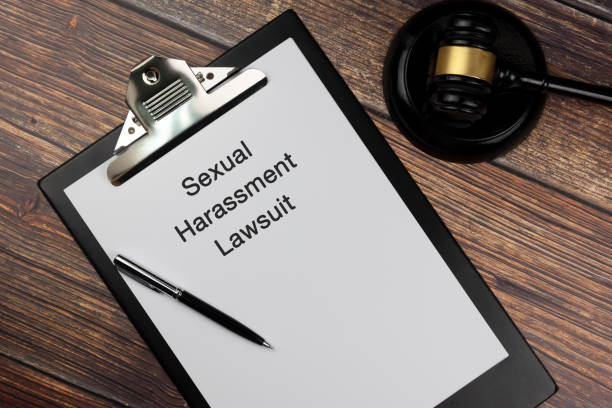
Sexual harassment: Mining giant BHP have recently dismissed a second employee, after the employee had been charged with rape but this time the allegation involves an incident when the man was off roster. It is alleged that in mid-July 2020, a BHP employee was sexually assaulted by a fellow employee at a home in Perth.
Sexual harassment: Employee sacked for rape allegations
After the Mulla Mulla case was reported in the media, BHP said it would not comment on any specific incident. BHP issued a statement saying: “Sexual assault or harassment is unacceptable at BHP, full stop. We are absolutely clear on this, and all employees, contractors and those that come to our sites are made aware of their obligation to support a safe and respectful workplace.”
BHP last month moved to tighten rules around alcohol consumption at all mine sites and accommodation villages, including Mulla Mulla, where there is a tavern-like bar area. The new rules, which come into force from July 1, include a four drink a day limit and a 9.30pm cut-off for its fly in, fly out workers.These incidences raise issues surrounding whether out of hours’ conduct, constitutes a valid reason for dismissal but in the context of alleged criminal behaviour.
Out of Hours Conduct – Valid reason?
With the proliferation of social media use and the ever-blurring lines between your work and private life, it is now significantly harder to recognise which aspects of your life your employer has control over. In short, it has been consistently recognised that out of hours’ conduct may constitute valid reason for dismissal if the conduct is of ‘such gravity or importance as to indicate a rejection or repudiation of the employment contract by the employee’.[1]
However, it should be noted that even if you have engaged in criminal conduct, it does not follow that the criminal offence alone should warrant a dismissal. The criminal activity must still be ‘sufficiently connected’ to your employment.
Sexual harassment outside of work hours
In Lee v Smith,[2] an employer was held vicariously liable when an employee raped a fellow employee at a private residence following a social dinner party. It was held that the rape was connected to the employment as it was the culmination of a series of sexual harassments incidences in the workplace and there was no doubt that the incident adversely affected the working environment. As this was not an unfair dismissal claim, the issue of whether this conduct would have constituted a valid reason for dismissal was not explored. Given it was held that the rape was connected to the employment, it would need to be established that the rape was “sufficiently connected” to satisfy the elements in Rose.[3]

Fighting outside of work hours
In Wayne Chambers v Toll Transport Pty Ltd,[4] Deputy President Boyce held that fighting amongst employees outside of work was held not to be sufficiently connected to their employment. Deputy President Boyce stated “The fact that Toll paid for the Applicants’ airplane tickets, cab fares, accommodation and meals does not sufficiently connect the Fight to the Applicants’ employment with Toll. Neither does Toll’s assertion that the alleged physical altercation resulted from a work-related discussion.
Toll has engaged in “but for” style reasoning (i.e. but for Toll paying for the trip, the incident would not have occurred, and so the requisite connection is made out). This is not the test at law… there is no evidence to suggest that the Applicants would not have attended the TWU meetings anyway (i.e. had Toll not agreed to pay for their airfares, other transportation, accommodation and meals).
The Applicants needed to get to Melbourne and the TWU offices in Port Melbourne, they needed accommodation somewhere, and they needed to eat dinner. In the circumstances of this case, whether such matters were arranged and/or paid for by Toll, the TWU, or the Applicants themselves, is not, in my view, a factor that weighs towards a finding that the Applicants were at work at the time of the Fight”.
Wayne Chambers v Toll Transport Pty Ltd,[4] Fair work Commission Deputy President Boyce
In addition, Deputy President Boyce rejected the submission that a sufficient connection to the workplace was somehow enlivened because the employees were discussing work-related matters in the lead-up to the Fight commencing. It was also held that there was no evidence that other employees were affected by the Fight, or that Toll’s reputation has been adversely affected. Ultimately, the Fight was held to not be of such gravity or importance as to indicate a rejection or repudiation by the employee of his contract of employment and thus there was no valid reason for dismissal.
It is unlawful to harass a person (an applicant or employee) because of that person’s sex. Harassment can include “sexual harassment” or unwelcome sexual advances, requests for sexual favors, and other verbal or physical harassment of a sexual nature.
Harassment does not have to be of a sexual nature, however, and can include offensive remarks about a person’s sex. For example, it is illegal to harass a woman by making offensive comments about women in general.
Both victim and the harasser can be either a woman or a man, and the victim and harasser can be the same sex.
U.S. Equal Employment Opportunity Commission
Although the law doesn’t prohibit simple teasing, offhand comments, or isolated incidents that are not very serious, harassment is illegal when it is so frequent or severe that it creates a hostile or offensive work environment or when it results in an adverse employment decision (such as the victim being fired or demoted).
The harasser can be the victim’s supervisor, a supervisor in another area, a co-worker, or someone who is not an employee of the employer, such as a client or customer.
U.S. Equal Employment Opportunity Commission
The above cases and statement are clearly serious, not all sexual harassment incidents are straight forward and often murky, and evidence is not available, the civil test is on the balance of probabilities, get advice from sexual harassment lawyers, or email or call us.

Conclusion to Sexual harassment: Employee sacked for rape allegations
A Whole New Approach P/L, we are not sexual harassment lawyers, we are workplace advisors and representatives who have been representing employees in sexual harassment issues/ claims since 2004, get advice from us, its free, its confidential, know your rights, call us today on 1800 333 666 , All workplace matters, sex discrimination, bullying, forced to resign due to sexual harassment. All Fair work Commission matters, including stop sexual harassment orders. Looking for a lawyer, try us first, fixed fees or no win, no fees. All states, including Victoria, NSW, Qld, All cities, including Melbourne, Sydney
Seeking compensation, want to know what your claim is worth, click here , also find out what other people have achieved
Free call 1800 333 666 for prompt confidential advice.
[1] Rose v Telstra Corporation Limited (1998) AIRC 1592.
[2] [2007] FMCA 59; (2007) EOC 93–456 (‘Lee’).
[3] Rose v Telstra Corporation Limited (1998) AIRC 1592.
[4] [2020] FWC 5819.













